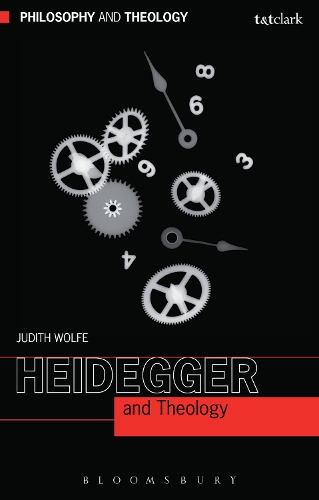
Heidegger and Theology
(Paperback)
Available Formats
Publishing Details
Heidegger and Theology
By (Author) Judith Wolfe
Bloomsbury Publishing PLC
T.& T.Clark Ltd
19th June 2014
United Kingdom
Classifications
Tertiary Education
Non Fiction
Theology
193
Physical Properties
Paperback
256
Width 138mm, Height 220mm, Spine 18mm
320g
Description
Martin Heidegger is the 20th century theology philosopher with the greatest importance to theology. A cradle Catholic originally intended for the priesthood, Heidegger's studies in philosophy led him to turn first to Protestantism and then to an atheistic philosophical method. Nevertheless, his writings remained deeply indebted to theological themes and sources, and the question of the nature of his relationship with theology has been a subject of discussion ever since. This book offers theologians and philosophers alike a clear account of the directions and the potential of this debate. It explains Heidegger's key ideas, describes their development and analyses the role of theology in his major writings, including his lectures during the National Socialist era. It reviews the reception of Heidegger's thought both by theologians in his own day (particularly in Barth and his school as well as neo-Scholasticism) and more recently (particularly in French phenomenology), and concludes by offering directions for theology's possible future engagement with Heidegger's work.
Reviews
Heidegger and Theology is aimed at 'students of theology who would like to know more about Heidegger' and 'students of Heidegger first encountering his engagement with theology'. Many other readers appreciate the precision with which Wolfe teases out the complex and interrelated biographical and intellectual dimensions of Heidgger's life and work. * The Tablet *
This latest addition to T&T Clark's excellent Philosophy and Theology series is very welcome. Judith Wolfe acknowledges that Heidegger's language is notoriously difficult to translate - and, we might add, to understand. But she brings admirable clarity to the task she has set herself, i.e. to introduce students of theology to Heidegger, and students of Heidegger to his engagement with theology. -- John Saxbee * Church Times *
When a slim, winsomely-written introductory volume manages accessibly to survey many of the most important signposts across Heidegger's path, does so in a way that both excavates new sources and puts them to constructive use, is historically-informed but futurally-minded and generous but critical -- that's an achievement Heidegger's theologically-minded readership is bound to find this boon of resources exciting. -- Matthew C. Halteman, Calvin College * Notre Dame Philosophical Reviews *
[A] strikingly erudite, meticulously researched, and penetrating book ... I highly recommend it, especially for theologians ambivalent to Heidegger. * The Heythrop Journal *
The most helpful thing on Heidegger Ive come across. Lucid, illuminating and comprehensive, it traces Heideggers changing relationship to theology over the course of his life, and concludes with an overview of 20th and 21st century theological responses to Heidegger. Wolfe brings to bear both an immersion in the source material, some of it newly available and not yet translated, and an unusual clarity of mind. The result is a book which will be useful to both theologians and philosophers, and to students and advanced scholars alike. It is a pleasure to read. * Karen Kilby, University of Durham, uk *
This is the best kind of introduction: drawing on substantial scholarship in an accessible manner, and organized around a theme the eschatological dimension of Heideggers thought that illuminates every phase of its subjects intellectual career as well as revealing one aspect of its underlying unity. * Stephen Mulhall, Oxford University, UK *
Judith Wolfes indispensible new book is a superb tour dhorizon of the terrain biographical, philosophical, and theological on which future work on the vexed topic of Heidegger and theology may be carried out. * Thomas Sheehan, Stanford University, USA *
This is a groundbreaking book and a work of exceptional scholarship whose clarity of exposition exposes more than one widely-current obfuscation. * John Milbank, University of Nottingham, UK *
...it is not an overstatement to say that it is already one of the best books on the subject. Not only does it provide a thorough introduction to the question of Heideggers relation to theology, but it does so with scholarly rigor and linguistic clarity. It is hard to see how, after Wolfes research, one could dismiss the importance of theology both as an influence on and an interlocutor with Heidegger. * LA Review of Books *
In this lively and readable book, theologian Judith Wolfe provides a helpful overview of the role of religion in philosopher Martin Heideggers life, the major themes in his philosophy, and the history of the reception of his work in theology and philosophy of religion Wolfe sheds fresh light on Heideggers relationship to the theologians of his day. * Interpretation: A Journal of Bible and Theology *
Wolfe takes us through an impressively large number of Heideggers writings, which she manages to distill with enviable clarity and without renouncing the nuance proper to a thinker of this magnitude. * American Catholic Philosophical Quarterly *
Author Bio
Dr Judith Wolfe is a Lecturer in Theology at the University of St Andrews, UK
